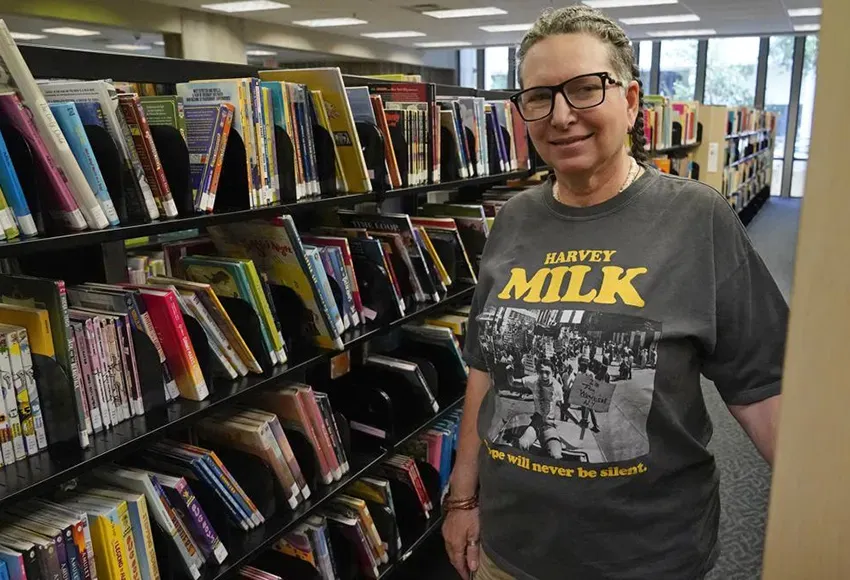Florida teachers struggle with mixed messaging
Florida's infamous "Don't Say Gay" law, which bans both content deemed not age-appropriate and lessons on sexual orientation and gender identity in kindergarten through third grade, has schools unsure about how exactly the law will be interpreted and enforced.
Most educators don't expect to make major changes in lesson plans due to the law, but they worry about finer details, like whether or not family pictures on their desks are allowed. Some also worry about the law ostracizing LGBTQ teachers and students.
"The messaging of the law is horrible," said Lesbian high school teacher Gretchen Robinson of Orange County. "It's toxic; it's discriminatory. It targets, very obviously, LGBTQ students, it 'others' them, and that is not OK."
Workshops about the law in Robinson's school only made confusion worse. Some staff said they were told that early elementary school teachers couldn't display Pride flags or photos of same-sex spouses, though the district clarified that photos were allowed.
In addition, schools in Robinson's area had given out rainbow lanyards and stickers, but whether teachers could wear them was uncertain, and she worried that teachers might "err on the side of caution and leave stuff out" during lessons.
Colorado Christian cites free speech to avoid Gay graphic design
The US Supreme Court is gearing up to hear the case of Lorie Smith, a Christian graphic and web designer who refuses to create custom wedding websites for same-sex couples. Smith claims that Colorado state law violated her right to free speech by requiring businesses to sell its goods or services to all members of the public.
The Colorado State Attorney's Office is urging the Supreme Court to uphold the state law. "The Act addresses what a business does and not what it says," lawyers of the office said in a brief. "Any burden the Act might impose on a business's expression therefore does not violate the First Amendment."
Jake Warner, Smith's lawyer, said that Smith has designed websites for LGBTQ+ customers in the past, arguing that the legal challenge isn't about discriminating against same-sex couples, but about state law forcing Smith to do create websites and graphics with ideas that go against her beliefs.
Colorado Attorney General Phil Weiser worried about the precedent Smith's case could set, if the court sides with her. "The free speech claim advanced here we think is dangerous and is one that, if granted, would open up a range of loopholes to anti-discrimination law," said Weiser. "Discrimination is not expression. It is illegal conduct."


